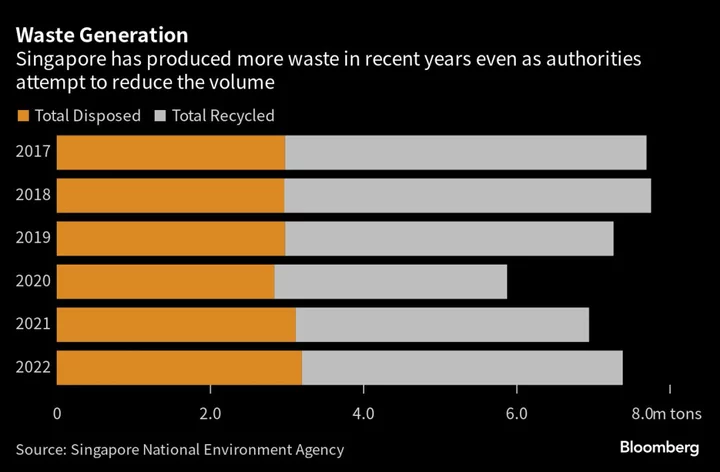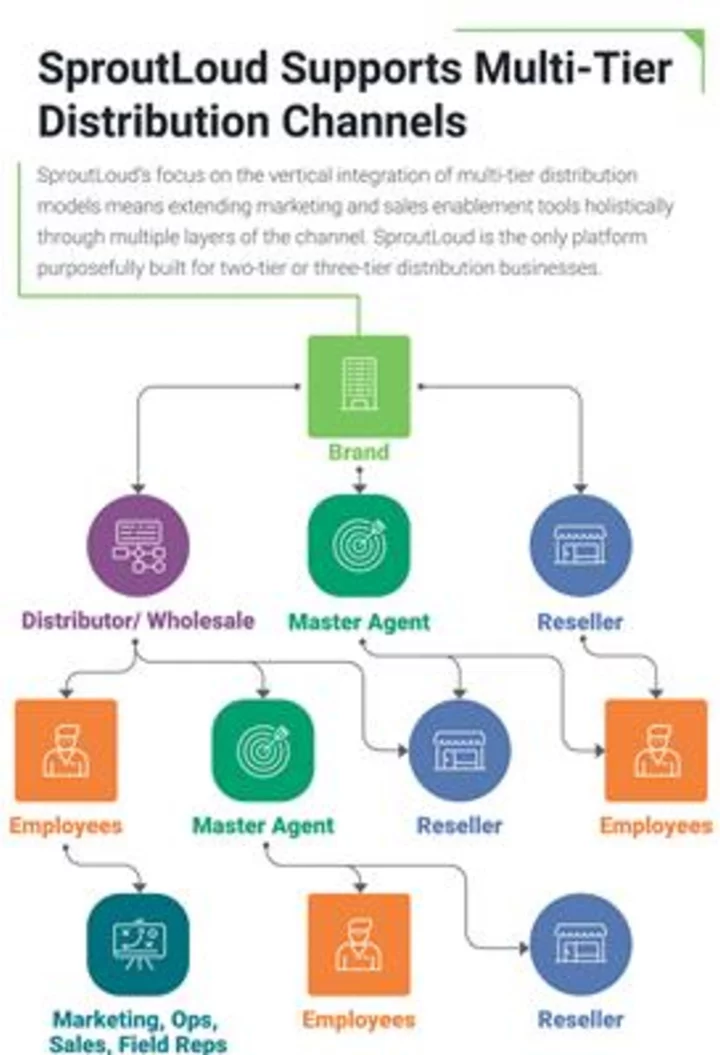Singapore is studying plans to dig up its only landfill site to make additional space as it wrestles with limited options to handle a rising volume of trash.
Removing and then reusing incinerated waste ash could extend the life of Semakau, a landfill facility that’s about 8 kilometers (5 miles) off Singapore’s coast and currently projected to run out of space by 2035.
“We’re thinking of mining the entire Semakau to recover the ashes for a second lease of life,” Grace Fu, Singapore’s Minister for Sustainability and the Environment said Wednesday at Bloomberg’s Sustainable Business Summit.
Singapore burns most of its trash at incineration plants before transporting the ash to Semakau and has in recent years tested options including the use of that residue as a road construction material.
Semakau is “still filling up quite quickly” and the country is considering options on how to deal with the existing ash, according to Fu. A decision could be made by the end of this year about what might be done, she said.
Singapore currently sends about 2,000 tons of ash and non-incinerable waste to Semakau each day, and has made only marginal inroads with efforts to reduce trash volumes and to increase recycling. The nation has also lagged behind countries like Japan or South Korea on introducing mandatory measures to reduce plastic consumption.
Total waste generation rose in 2021 and 2022, and while the recycling rate jumped last year to 57% it remains below levels seen in 2018 and 2019.
The situation has raised concerns among some legislators and campaigners, particularly given Singapore’s reliance on the Semakau site and its lack of available land to use for additional dumps.
“It is worrying. We’re consuming more and more,” said Louis Ng, a lawmaker with the governing People’s Action Party and a sustainability activist.
Experiments have reused incinerated ash for road construction and concrete applications, according to Zerowaste Asia, a Singapore-based company that has worked on the trials with the country’s National Environment Agency.
The tests show such techniques can “not only prolong the landfill’s lifespan but also create alternative construction materials and reduce materials import reliance for Singapore,” said Sun Xiaolong, Zerowaste Asia’s founder and managing director.
Some campaigners have urged a much greater focus on first reducing the volume of waste being generated, rather than on finding new uses for the ash.
Singapore is introducing dual rubbish chutes for refuse and recyclables at more new public housing and private residential developments and looking to expand the use of food waste digesters at sites like hawker centers. Major supermarket chains started charging for disposable bags in early July.
“We have to step up our outreach efforts to explain the importance of this issue and why we need to go zero-waste,” Ng said in an interview. “It’s really about changing people’s mindsets and habits, and that’s taking some time.”









